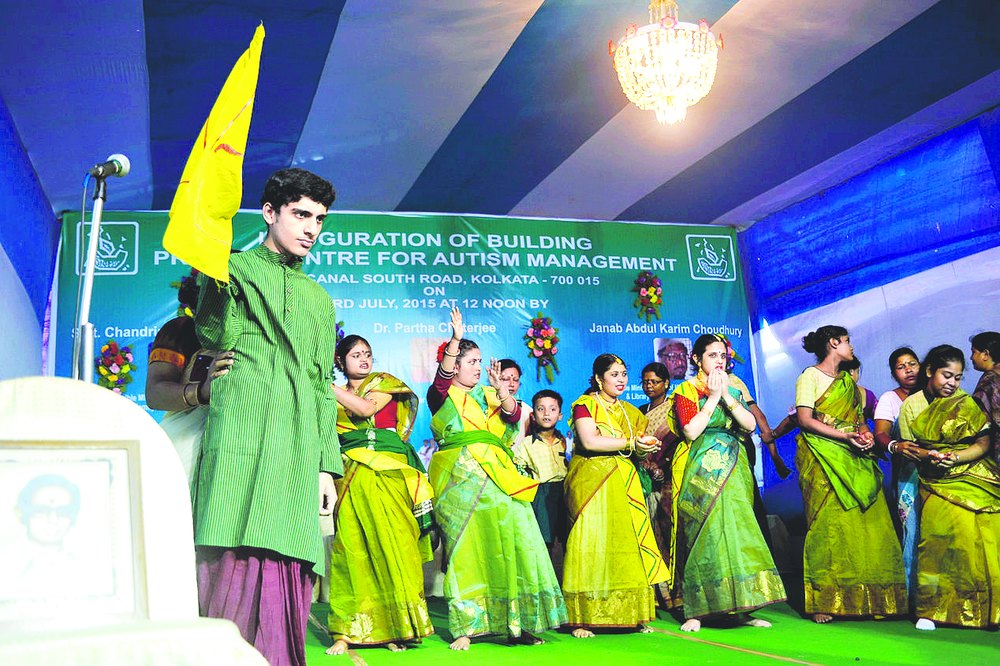
A centre for those with autism, aged between two and 24, was inaugurated on Canal South Road, off the EM Bypass, on Thursday.
The centre will help parents of children with autism because there aren't enough places in the city where such kids can be trained to socialise and communicate.
Autism is characterised - in varying degrees - by difficulties in social interaction, verbal and non-verbal communication and repetitive behaviour.
Pradip: Centre for Autism Management is a G + 4 building with 34 rooms. It has facilities to train 200 students to self-help, communicate, and socialise. The centre will also provide sex education. It has seven therapy rooms for speech, music and dance, early intervention and sensory integration.
Pradip was earlier operating from three rented properties in Lake Town. Krishna Roy who has been working with children suffering from autism for 15 years said: "There is a dearth of centres in Calcutta compared to cities like Delhi, Bangalore, Hyderabad and Pune." Roy is also the principal of Alokdhara, a Montessori school where children with autism attend classes with other kids.
Mallika Banerjee, the head of Calcutta University's psychology department, and Urmila Ukil, the principal of Sarojini Naidu College, started Pradip in 2000 when they needed an autism centre for their children.
"Autism was handled with all other disabilities.... But it requires a special type of intervention," Banerjee said. "We started with two children and four teachers but we now have 170 students and 50 teachers and staff who are trained in special education." She is the director of Pradip.
The day care centre operates in two shifts from 10.30am to 4.30pm.
India has more than 13 million people with autism. According to estimates of the Centre for Disease Control and Prevention, only a projected 5-10 per cent of these people live independently as adults.
"Intervention often gets delayed because parents are in denial," Roy said. "Even doctors ask parents to wait and watch.... It can be detrimental to children. Early intervention helps because as a child grows, his/her abilities to comprehend starts deteriorating."
Banerjee said children with autism have either low or more sensation, which could be visual, tactile or auditory. "We have to train them to integrate these skills," she said.
The Calcutta Metropolitan Development Authority provided the land for the centre at a subsidised rate while the mass education department helped with the initial funding. The Hans Foundation, a charitable trust, has given more than Rs 2.5 crore towards construction of the building.
"We joined them in 2012 and provided vocational training support to people with moderate autism," G.V. Rao, executive director, The Hans Foundation, said.
The centre also provides human resource training in special education that includes a bachelor's degree in special education (mental retardation) and a diploma in special education (autism spectrum disorder). Both are recognised by the Rehabilitation Council of India.
Pradip has plans to start a shelter for children with autism whose parents have passed away. "Not all can be mainstreamed.... They require support in the absence of their parents and we intend to provide them that," Banerjee said.











